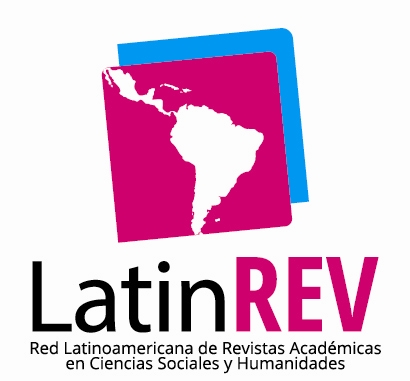Private life as a fundamental right and the interception of communications
http://repositorio.ulvr.edu.ec/handle/44000/4056
DOI:
https://doi.org/10.62325/10.62325/yachana.v9.n3.2020.679Palabras clave:
Globalización, Derecho, Acceso a la información, Derecho a la privacidad, Comunicación.Resumen
The convergence between technological development, political objectives, and economic interests causes the current world a notable tension to safeguard the privacy and intimacy of the person, recognized as fundamental rights, which condition the sufficient freedom and self-determination of the person. This text offers a conceptual analysis, to describe these rights in their current situation and in which aspects conflicts arise, which the Law has to resolve. For the social mindset, the violation of a person's intimate space is unacceptable, regardless of the context in which they are found. Moreover, there are various spheres in which it can occur: work, in activities within an organization, in obtaining evidence for trials, or in situations that interest public order. In Ecuador, the legal regime is configured by constitutional recognition and in various legal bodies: criminal, procedural, electronic commerce, and in the Communication Law, plus the corresponding regulatory development. Furthermore, there is a demanding international framework that binds our country. However, there is a fear of exercising the right to express one's own thoughts: the expression of opinions in areas reserved for general knowledge does not seem to have sufficient guarantees. The invasion of privacy on the internet, like on social media, is seen as a sufficient threat. The debate becomes necessary when, besides, it is opposed to the right to information. Following the conceptual contributions provided by the doctrine, the right to privacy in the face of interference by the political power and the media must be configured in its proper terms. This allows us to outline a conceptual framework with timely relevance for the consideration of privacy in the Ecuadorian legal regime.
Descargas
Citas
Asamblea Nacional Constituyente. (2008). Constitución de la República del Ecuador 2008 [Última modificación 13 de julio, 2011]. Decreto Legislativo 0. Registro Oficial 449. 20 de octubre de 2008. https://bit.ly/3dbwSiY
Asamblea Nacional del Ecuador. (2014). Código Orgánico Integral Penal (COIP). Registro Oficial 180. 10 de febrero de 2014. https://bit.ly/3dh7icg
Ávila, R. (marzo, 2012). Los derechos y sus garantías: ensayos críticos (Pensamiento jurídico contemporáneo, 1). Corte Constitucional para el período de transición. https://bit.ly/3fE3Xpl
Carcamo, J. (2010). Leyes Civiles. Diccionario y Guía de la Normativa (vol. 1). Biblioteca Jurídica Ecuatoriana.
Cárdenas, Jaime (2009). Introducción al Estudio del Derecho (Serie Manuales de Derecho 1). Nostra Ediciones. https://bit.ly/3fDcMjh
Congreso Nacional. (2002). Ley de Comercio Electrónico, Firmas y Mensajes de Datos [Ley 2002-67]. Registro Oficial 557. 17 de abril de 2002. https://bit.ly/3ediUhM
Díaz, J. (julio-octubre, 2002). Privacidad: ¿neologismo o barbarismo? Espéculo. Revista de Estudios Literarios, 8(21). https://bit.ly/2YTWwUa
Fernández, Carlos (septiembre, 2019). El nuevo concepto de privacidad: la transformación estructural de la visibilidad. Revista de Estudios Políticos, 185, 139-167. https://bit.ly/3hJL7Pk
García, A. (septiembre-diciembre, 2007). La protección de los datos personales: derecho fundamental del siglo XXI. Un estudio comparado. Boletín Mexicano de Derecho Comparado, nueva serie, 11(120), 743-778. https://bit.ly/2UVzLOD
García, J. (20 de octubre, 2015). Derecho a la intimidad personal y familiar. Revista Judicial, 11220, 1-2. https://bit.ly/2YQbaMm
Lastra, J. (1998). Conceptos Jurídicos Fundamentales. En Instituto de Investigaciones Jurídicas (ed.), Liber ad honorem Sergio García
Ramírez (vol. 1), (pp. 399-420). Universidad Autónoma de México. https://bit.ly/3fFYtKD
Martí de Gidi, L. (marzo-septiembre, 2009). Vida privada, honor, intimidad y propia imagen como derechos humanos. Revista Letras Jurídicas, 8, 1-12. https://bit.ly/3ejpnrF
ONU. (2015). Declaración Universal de los Derechos Humanos (DUDH). https://bit.ly/2V26Jgi
Recaséns, L. (1978). Tratado General de Filosofía del Derecho. Editorial Porrúa.
Riofrío, J. (2008). El Derecho de los secretos. Temis.
Riofrío, J. (septiembre, 2015-febrero, 2016). El derecho al secreto y la teoría del cono. Derecom, 19, 137-163. https://bit.ly/3fBklGY
Sade, Marqués de. (2002). Los crímenes del amor. Librodot.com. https://bit.ly/2YP44Yt
Salgado, H. (2008). El derecho a la protección de la vida privada y el derecho a la libertad de información en la doctrina y en la jurisprudencia ecuatoriana. Estudios Constitucionales, 6(1). https://bit.ly/3deaJ3D
Saldaña, M. (2011). El derecho a la privacidad en los Estados Unidos: Aproximación diacrónica a los intereses constitucionales en juego. Teoría y Realidad Constitucional, 28, 279-312. https://bit.ly/2NdKXlo
Solozábal, J. (enero-marzo, 1991). Algunas cuestiones básicas de la teoría de los derechos fundamentales. Estudios de Políticos Nueva Época, 71, 87-109. https://bit.ly/2YgpPRD
Toscano, M. (julio-diciembre, 2017) Sobre el concepto de privacidad: la relación entre privacidad e intimidad. Isegoría, Revista de Filosofía Moral y Política, 57, 533-552. https://bit.ly/3fFn2aD
Villanueva, E. y Díaz, V. (2015). Derecho de las nuevas tecnologías (en el siglo XX Derecho Informático). Oxford University Press. https://bit.ly/3fH6Ci5
Zambrano, A. (2008). Introducción al libro. La prueba ilícita en el proceso penal. Revista Jurídica on-line, 49-75. https://bit.ly/2Cpp14E
Publicado
Cómo citar
Número
Sección
Licencia
Derechos de autor 2020 Yachana Revista Científica

Esta obra está bajo una licencia internacional Creative Commons Atribución-NoComercial-CompartirIgual 4.0.





















